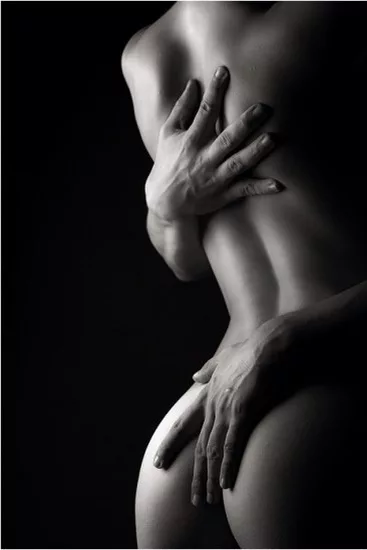What Happens After the Earthquake?
After the theology burns… after the shame peels off like dead skin… after desire breaks through your carefully framed doctrines…
Something astonishing unfolds.
Communion.
Not the liturgical kind with polished silver and pressed linens—though that too has its mystery. No, I’m talking about the messy, trembling communion that happens when two souls meet in flesh and spirit.
When your guard falls.
When your breath syncs with another.
When the ache of your body is no longer loneliness but invitation.
This is where Eros, untamed and unapologetic, begins to gather us—into something holy, wild and mutual.
Not Fusion. Not Possession. But Presence.
In this communion, there is no domination. No hierarchy. No game of power or performance.
There is only presence.
A presence that says: I am here, and so are you. Fully. Honestly. Touched by the same sacred flame.
I’ve experienced moments in love-making, or even just in a long held gaze, where all dualities fall away. Not in some abstract mystical fusion, but in the terrifying grace of being seen without armour. Of touching someone not as an object, but as an icon.
You realize: This is not about pleasure alone. This is Eucharist. This is incarnation meeting incarnation.
Erotic as Sacrament: Not Because It Is Clean, But Because It Is Real
The church taught me sacraments were clean things—rituals with rules and sacred boundaries. But the theoerotic has taught me otherwise.
Sacrament is what happens when god shows up in the body and shines through the cracks. It is the revelation of divine light unveiled in the body.
And often, that happens in the bedroom. In the kitchen. On the floor. After weeping. After laughter. After we’ve stopped pretending to be anything other than what we are.
There is no “right” form. There is only real presence. That’s the only condition required for grace to erupt.
Freely Given, Not Taken
This is why consent is not just an ethical necessity—it is sacred theology.
Communion requires willingness, not coercion. It is not taking; it is freely given. And freely received.
To touch someone who offers themselves freely—not as a product, not as a solution, but as a person—this is worship.
Not the worship of the other person, but the worship that happens when two persons incarnate the image of god to one another, and dare to believe it.
When Flesh Becomes Liturgy
In these moments, something larger gathers with us.
Maybe it’s memory. Maybe it’s mystery. Maybe it’s the ghost of every repressed pleasure or silenced yearning. Maybe it’s spirit, breathing over the surface of the tehom – the primordial deep, just like she did in the beginning.
I do not need an altar.
I do not need stained-glass.
I need only this moment, this breath, this body—open, reverent, real.
And then the flesh becomes the liturgy.
The kiss becomes the cup.
The moan and tremble becomes the prayer.
Remember
Theoerotic communion is not about escape. It’s about arrival.
When we show up—fully, vulnerably, joyfully—we enter a sacred space.
Not despite the body. But through it.
The erotic becomes a sacrament not because it is ordered or clean, but because it is honest. Mutual. Given.
And in that space, god is not watching, because that space is god.
We are one with the divine, dancing an erotic – perichoretic dance, unravelling and reforming time and time again.
- Theoerotics!?
- Embracing the Theoerotic: Where Your Deepest Desires Kiss the Divine
- The Call That Won’t Let Go — When Sexuality Becomes a Voice, Not a Thing
- The Illusion of Having a Sexuality — When Desire Unmakes the Self
- Reclaiming Erotic Love as Theological Resistance
- Communion in the Flesh — Sacramental Theoerotics
- The Ache That Opens the World — The Theoerotic Longing for the Divine







